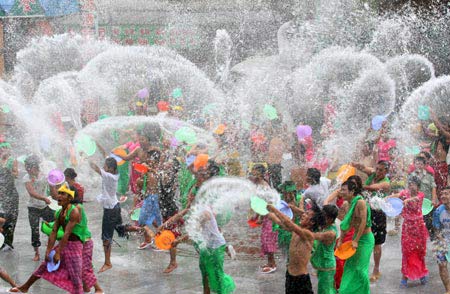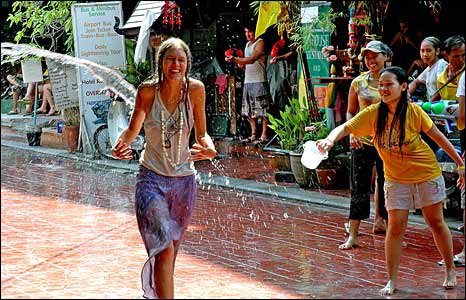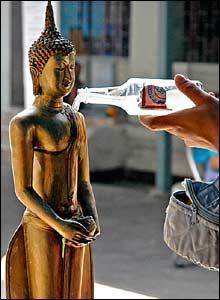Celebrated across Thailand, the Songkran Water Festival announces the new year with a country-wide water fight. It is a Thai national holiday and workers and students are given time off. In its early years, the date of the festival varied because it was based on the astrological calculations of the sun’s transition across the constellation Aries, but now the date is fixed on April 13th-15th every year.
Songkran was traditionally a time to visit family and pay respects to elders, clean away the old year and welcome a fresh one. Many Thais washed away the old year by literally washing their homes, any Buddhas, or Buddha images around the house. They would collect the water that ran over the Buddahs and pour it onto the shoulders of family for good luck. This tradition progressed to include throwing water on strangers to help provide reprieve from the intense April heat.
Eventually the Water Festival became something Thais and foreigners alike loved. People gather buckets, water balloons, hoses, and anything else they can find to douse each other with water. Sometimes chalk is mixed into the water to create a paste to mark each other’s faces for good fortune.
The not so traditional tradition brings huge numbers of international tourists who are eager to join in the Water Festival. Chang Mia hosts one of the biggest Songkran celebrations, with performances, street food, and a procession of an image of Buddha.
Many keep traditional Thai celebrations with the holiday by scenting the water with herbs and shaking it over their elders, as well as visiting temples to provide offerings to Buddhist monks.
Some Thai people complain and worry over the original meaning of the holiday being lost, as well as desire more strict control over the holiday.
The days of Songkran are a great time and provide beautiful exposure to Thai traditions.
Photo Credit: BBCnews.uk











